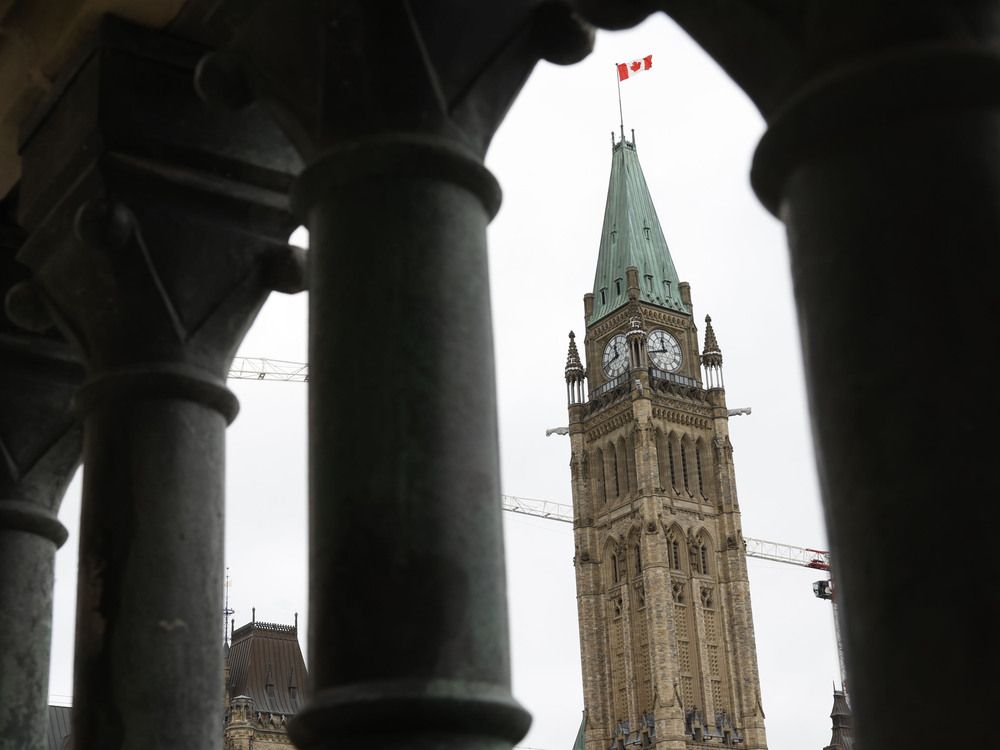Business
Canadians Urged to Reflect on the Decline of Budget Secrecy

The tradition of budget secrecy in Canada is fading, raising concerns about the integrity of financial governance. Once a closely guarded affair, the federal budget’s details are now frequently leaked or pre-announced, leading some to question the effectiveness of this shift. As financial decisions increasingly emerge through strategic disclosures, critics argue that this undermines the seriousness and trustworthiness of the budgeting process.
Historically, budget secrecy served to prevent insiders from gaining an unfair advantage through advance knowledge of fiscal policies. Former House Speaker John Fraser noted in 1987 that this secrecy is a parliamentary convention aimed at ensuring equitable access to information. Although not legally mandated, this practice has roots in the United Kingdom, where breaches could result in the resignation of the Chancellor of the Exchequer. In Canada, however, the adherence to this convention has been less stringent, as demonstrated by incidents involving former finance ministers.
In 1983, then-finance minister Marc Lalonde inadvertently leaked budget documents during a televised interview, which did not result in his resignation. Similarly, in 1989, finance minister Michael Wilson faced a leak when a reporter revealed budget details obtained from discarded documents, although Wilson responded with an early announcement rather than stepping down.
The last two decades have witnessed a deliberate erosion of this once-sacred secrecy. With budget day now resembling a theatrical formality, significant aspects of fiscal policy are often disclosed in advance. Larger spending announcements and tax measures are frequently leaked to select journalists, facilitating a narrative control that some argue limits genuine democratic debate. Advocates for this openness suggest it allows for better preparation and broader public engagement, claiming that strict secrecy is a relic of the past.
Nonetheless, critics assert that this trend has led to a manufactured consent rather than informed discussion. Recent reports indicate that the government plans to enhance oversight of the trucking industry’s purported tax loopholes, as well as introduce a temporary Personal Support Workers Tax Credit. While some view these pre-announcements as beneficial, others argue they dilute the budget’s impact and the public’s ability to engage critically with its contents.
The implications of this shift are significant. With the upcoming budget on November 4, the flow of information prior to its release raises concerns about the authenticity of public debate. Critics posit that allowing prior disclosures creates a framework where stakeholders react to curated narratives rather than engaging with the substance of the budget itself. This approach can lead to an environment where real scrutiny is replaced by rehearsed political messaging, detracting from the process’s integrity.
The historical precedent set by figures like Hugh Dalton, who resigned after leaking budget information in 1947, underscores the importance of maintaining confidentiality in financial matters. Budget secrecy is not merely about timing; it reflects a commitment to transparency that ensures all stakeholders receive critical information simultaneously.
As the discourse surrounding budget transparency evolves, Canadians are encouraged to reflect on the implications of this shift. If the nation values the integrity of its federal budget, there is a pressing need to restore the discipline that once characterized this essential process. Ultimately, a budget should reveal critical financial decisions with the seriousness they merit, rather than being disseminated as mere talking points.
-

 World4 months ago
World4 months agoScientists Unearth Ancient Antarctic Ice to Unlock Climate Secrets
-

 Entertainment4 months ago
Entertainment4 months agoTrump and McCormick to Announce $70 Billion Energy Investments
-

 Lifestyle4 months ago
Lifestyle4 months agoTransLink Launches Food Truck Program to Boost Revenue in Vancouver
-

 Science4 months ago
Science4 months agoFour Astronauts Return to Earth After International Space Station Mission
-

 Technology2 months ago
Technology2 months agoApple Notes Enhances Functionality with Markdown Support in macOS 26
-

 Top Stories3 weeks ago
Top Stories3 weeks agoUrgent Update: Fatal Crash on Highway 99 Claims Life of Pitt Meadows Man
-

 Sports4 months ago
Sports4 months agoSearch Underway for Missing Hunter Amid Hokkaido Bear Emergency
-

 Politics3 months ago
Politics3 months agoUkrainian Tennis Star Elina Svitolina Faces Death Threats Online
-

 Politics4 months ago
Politics4 months agoCarney Engages First Nations Leaders at Development Law Summit
-

 Technology4 months ago
Technology4 months agoFrosthaven Launches Early Access on July 31, 2025
-

 Top Stories2 weeks ago
Top Stories2 weeks agoFamily Remembers Beverley Rowbotham 25 Years After Murder
-

 Top Stories5 days ago
Top Stories5 days agoBlake Snell’s Frustration Ignites Toronto Blue Jays Fan Fury




















